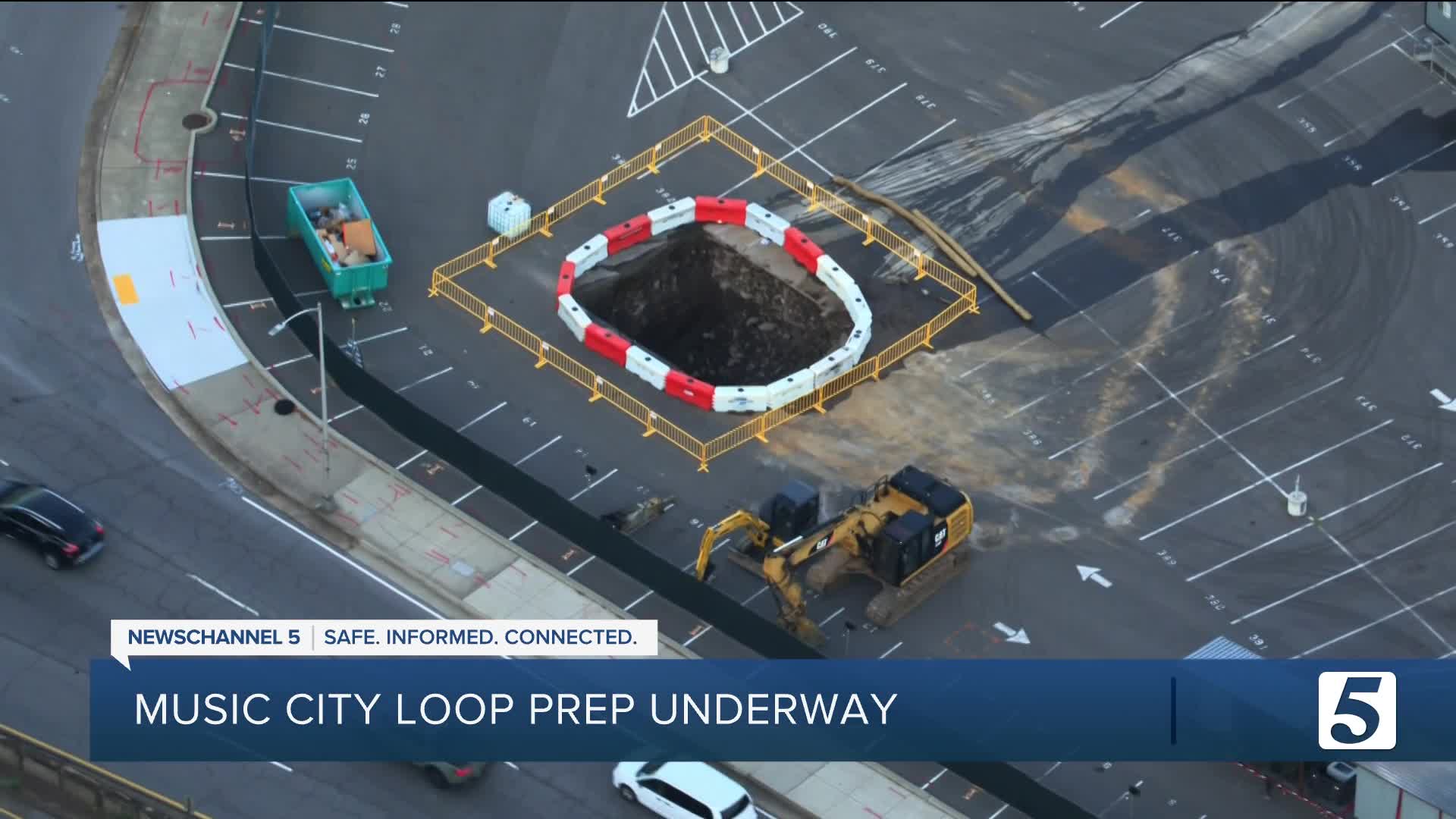NASHVILLE, Tenn. (WTVF) — Aerial footage from Sky 5 shows a freshly dug pit near the base of the State Capitol, a visible sign of progress on The Boring Company’s controversial underground transportation project in Tennessee.
The 10-foot-deep, 20-by-20-foot test pit was dug this week to study the rock beneath downtown. It’s part of the company’s plan to eventually shuttle passengers between the airport and downtown in Teslas through twin tunnels, aiming for a nine-minute trip by 2027.
"By the way, tough place to tunnel in Nashville," said Steve Davis, CEO and President of The Boring Company. "You have extremely hard rock, like way harder than it should be."
The construction site remains largely hidden from street view, surrounded by fencing covered with green tarps, making aerial footage the only way to observe the ongoing work.
According to the Tennessee Department of General Services, a much larger excavation is coming once the governor gives final approval – a 40 by 100 foot rectangle extending 30 feet deep. This depth is significant as The Boring Company typically places its tunnels more than 30 feet below the surface to avoid utility lines.
The city has not yet been asked to approve any digging, suggesting this preliminary work doesn't interfere with water or electrical infrastructure. However, that could change as the project expands to potentially span 10 miles under airport property, beneath Murfreesboro Pike to Lafayette Street, past the Music City Center, under Eighth Avenue, and all the way to the State Capitol.
An FAQ section on the company's site reveals the project is currently in the design phase, with site preparation scheduled for Q3 2025 and actual tunneling likely to begin in Q4 2025.
The company states the project is 100% privately funded, requiring no taxpayer dollars for construction or operation, though passengers will pay a fare to use the system.
They say safety features will include real-time gas and smoke detection, a wet standpipe system for fire suppression, and a bidirectional ventilation system.
The company notes that its Vegas Loop recently received the Gold Standard Award from the U.S. Department of Homeland Security for security and emergency preparedness.





